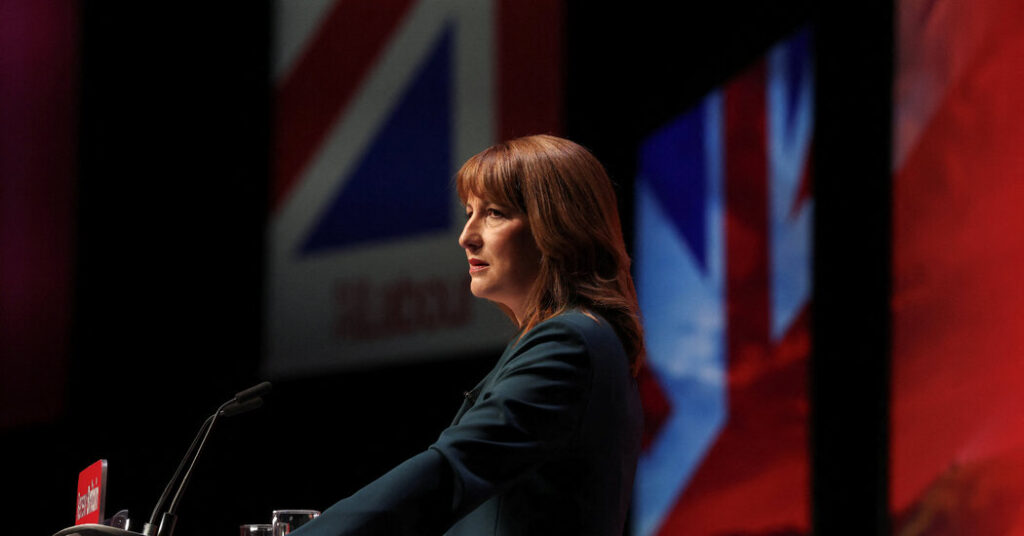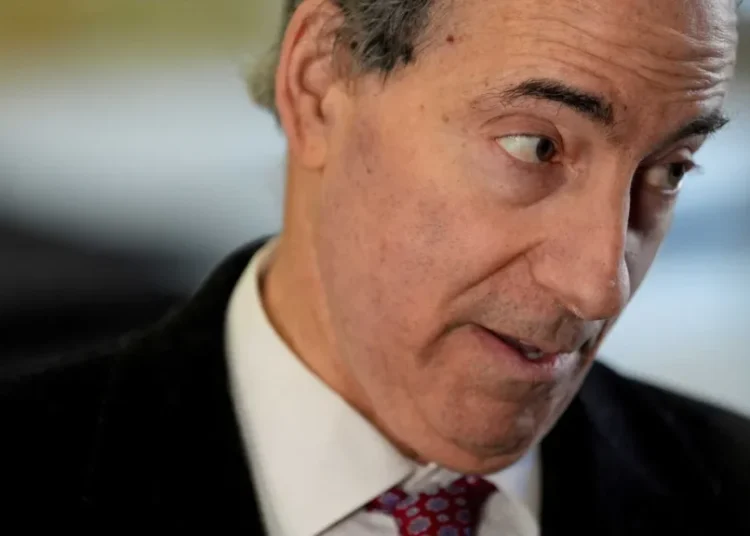After more than a year in what she described as her “dream job,” Rachel Reeves, Britain’s top economic official, is about to face a nightmarish test. On Wednesday, she will deliver her second annual budget, setting out the government’s priorities to disgruntled voters, rebellious members of her own political party and anxious bond investors.
Pleasing any of these groups, much less all of them, will be difficult. The Labour Party of Ms. Reeves and Prime Minister Keir Starmer swept to power with a large majority in July last year, but its time in government has been filled with policy reversals, accusations of a lack of strategy and a recent descent into paranoia and infighting.
For her second straight budget, Ms. Reeves, the chancellor of the Exchequer, is expected to raise taxes and cut spending. She will also try to soften the blow with measures to ease the high cost of living for many Britons. Striking this balance is fraught with risk for her and Mr. Starmer, who are both deeply unpopular.
An economic growth spurt at the beginning of the year, fueled by government spending, has petered out. The British economy grew just 0.1 percent last quarter. A report cutting the forecast for productivity growth, expected to accompany the budget, also suggests that the economy could remain sluggish.
“The biggest obstacle the Labour government has is, first and foremost, growth,” said Ed Al-Hussainy, an interest rate strategist at Columbia Threadneedle, an asset manager. “They’ve had the bad luck of not being in a high-growth environment, and whatever policy levers that they’ve pulled over the last 12 months haven’t worked.”
That has focused attention on the leaders behind those policies, he added, and “that’s never good.”
In a recent poll, Ms. Reeves recorded the lowest popularity rating of any chancellor since at least the late 1970s, when the survey began. She has been blamed for many of the country’s struggles, including trends that gained momentum before she took office, like the rising cost of living and high interest rates. When she announces the budget in Parliament, an often raucous event that marks one of the biggest days in Britain’s political calendar, she will embody the country’s economic challenges.
But one powerful group appears on her side: the bond market. Earlier this year, the value of the pound dropped and the government’s borrowing costs spiked amid speculation that Ms. Reeves’s job was at risk. Market moves have implied that investors approve of what she has called “ironclad” fiscal rules to reduce Britain’s debt burden, and fear a chancellor with less budget discipline.
Recent reports that Ms. Reeves wouldn’t raise income tax rates, after speculation that she would, were met with another jump in borrowing costs. Each spasm in response to signs of a laxer fiscal stance has recalled the short premiership of Liz Truss, whose tax-and-spend plan three years ago memorably shook markets as investors lost faith in Britain’s fiscal credibility.
“It has a whiff of desperation from the market’s perspective that we are hanging on to Rachel Reeves being the last line of defense,” Mr. Al-Hussainy said.
Squeezed by past promises
The Labour Party came into power with many promises. In government, it would not raise taxes on working people, ruling out increases in income tax rates, national insurance and value-added tax, which are also the country’s largest revenue raisers. Ms. Reeves vowed to quickly improve public services and increase investment. Her economic ideology was inspired by Janet Yellen, the U.S. Treasury secretary during the Biden administration, and called for an active role by the state in shaping the economy. This would ultimately end Britain’s economic stagnation, the theory went.
But Ms. Reeves inherited a large hole in the public finances, the result of her Conservative Party predecessors’ undercounting some spending and the cost of increasing public-sector wages. President Trump’s victory, which brought policy uncertainty and higher tariffs, altered the global growth picture.
Through it all, Ms. Reeves has tried to stick to her pledges, resulting in what critics deride as a piecemeal approach to policymaking. The constraints have since tightened, with more money going toward paying interest on debt and less expected to come in because of weak economic growth. She has tried to make savings, such as by cutting winter fuel payments to pensioners and slashing spending on welfare, but these measures have been torpedoed by members on the left of her party.
The challenges are “mainly a symptom of quite how difficult it is to resolve low growth, high interest rates, disappointing public services, high debt and historically high tax rates,” said Ruth Curtice, the chief executive of the Resolution Foundation, a think tank, and former director of fiscal policy at Britain’s Treasury.
In trying to deal with all of those things, she said, “you leave yourself with less margin for error.”
Fickle forecasts complicate the calculations
Three weeks ago, Ms. Reeves gave a speech in which she set the tone for the budget and seemed to lay the ground for raising taxes in a way that would potentially break Labour’s pre-election promises.
In her first budget, she raised taxes by the equivalent of over $50 billion. “This is not a budget we would want to repeat,” Ms. Reeves said at the time.
That raises the stakes for this week’s budget, Ms. Curtice said: “It is quite unusual for chancellors to have to come back for a second bite.”
The impetus is that the Office for Budget Responsibility, the country’s independent fiscal watchdog, is set to downgrade Britain’s productivity growth forecast. A 0.3 percent downgrade in productivity growth could lead to a fiscal hole of 14 billion pounds (about $18.35 billion) by 2030, the Resolution Foundation estimated.
That such seemingly small changes in the outlook can prompt big policy changes rankles many economists, but Ms. Reeves has committed to sticking to her rules on reducing debt, bound by the forecasts of the Office for Budget Responsibility. Ms. Truss bypassed the watchdog before her chancellor announced the tax-and-spending proposals that sank the markets.
A way out?
While the gloomier forecasts are a headache, the bigger issue for Ms. Reeves is the lack of sustained economic growth. That was not helped by a recent study that suggested the economic fallout of Brexit was worse than previously estimated, shrinking the economy by up to 8 percent and slashing investment by up to 18 percent.
The government should focus on investments it can make to deliver economic growth, said Diane Coyle, a professor of public policy at the University of Cambridge and a government adviser on industrial strategy.
There has been a “seduction of large numbers, rather than thinking through what will make U.K. companies invest and grow,” she said, such as in the technology and creative industries.
Many economists believe there is a way out of the bind, albeit a politically challenging one. Ms. Reeves could build up a big buffer against her rules on debt and deficits by raising tens of billions of pounds in taxes, which would probably require breaking Labour’s promises. But, that way, small changes in the economic outlook wouldn’t require kneejerk policy responses.
If the government could, then, borrow less and reduce inflation, that would create a “virtuous feedback loop,” Ms. Curtice said.
“There’s an opportunity for this budget to make a virtue of that,” she said.
Eshe Nelson is a Times reporter based in London, covering economics and business news.
The post Britain’s Most Unpopular Chancellor in Decades Faces Another Big Test appeared first on New York Times.




